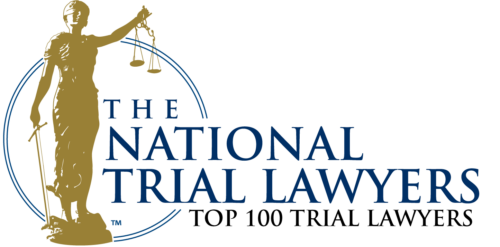A recent Greyhound bus accident in Central Pennsylvania left dozens of people injured, and killed one of the bus passengers when the bus rear-ended a truck on I-80. If you have been in a bus accident in Philadelphia or elsewhere in PA, or in case you ever are, this brings up the question of “What happens next?” How can these passengers get compensation for their injuries? Our Philadelphia bus accident lawyers explain:
When you put your trust in a bus driver, train operator, taxi driver, or any other “common carrier,” you might literally put your life in their hands. This kind of trust requires a stronger duty of care for those drivers – and although there may be different out-of-state bus accident regulations, the law in Pennsylvania does enforce such a duty. The other interesting point here is that this accident was caused by the bus rear-ending the truck. Rear-end collisions are not typically as simple as they seem.
If you have been involved in a bus accident, or an accident on any other form of transportation, you might be able to seek compensation. For a free consultation with a Pennsylvania personal injury and car accident attorney who can help you with your case, contact The Reiff Law Firm at (215) 709-6940.
Transportation Services Need to Take Care of Their Passengers
Whether you are on a plane, train, trolley, bus, or a taxi, the people hired to transport you have a higher duty to take care of you than people normally do. These groups are called “common carriers,” and since the early days of U.S. law, they have been held to a higher standard.
When facing an injury, in order to recover against someone for the harms that they negligently caused, a plaintiff need to prove four things:
- The defendant owed a duty to the plaintiff.
- The defendant breached that duty.
- The defendant’s breach caused the plaintiff harm.
- The plaintiff suffered harm that a court can compensate for – known as “damages.”
Most people do not owe a duty to others, except to refrain from hurting them on purpose.
In a car, the driver has a duty to drive carefully and obey the rules of bus safety of the road. That duty is owed to other drivers on the road and any passengers in their vehicle. But for common carriers, the duty owed to passengers is much higher.
Connolly v. Philadelphia Transportation Company, a 1966 case by the Pennsylvania Supreme Court, agreed with this heightened duty for common carriers, saying that a carrier “owes to its passengers the highest degree of care.” The case goes on to say that jerky travel, by itself, does not fall below this standard – but that any unusual jolt or jerk that causes a passenger injury can be negligence on the part of the common carrier.
Certainly, then, injury caused by crashing the car, bus, trolley, train, or airplane falls below this high duty of care. For a case like this bus crash, the bus driver and its company should be liable for any injuries or deaths the passengers suffered because of the crash.
The Transportation Company is Responsible Too
While the driver was the one operating the bus, and most transportation uses some sort of driver or operator on-site, they are not necessarily the only ones responsible for a crash. In many cases, the bus company, taxi company, airline, or transportation authority can be held responsible for the negligence of its employees on the job – but it can also be held responsible for its own failures.
The legal doctrine of “respondeat superior” is an old legal doctrine used to hold employers responsible for the bad actions of their employees. Employees act on behalf of their employers while they are performing their job duties, and so, any harms that they cause are attributable to their employer as well as the individual actually holding the steering wheel.
This is a form of “vicarious liability,” used to hold one party responsible for the actions of another. Its history is quite old, but a 2000 case in Pennsylvania highlights the rule well. In Brezenski v. World Truck Transfer, Inc., the Superior Court of Pennsylvania limited when respondeat superior can apply. To hold the employer liable for the actions of the employee, the employee must be acting “within the scope of employment.” That means that acting outrageous, or doing something for a personal reason (rather than for their job) puts their actions outside the scope of employment. For a case like this bus accident, it seems likely that the bus driver was just driving the bus, plain and simple. That is what she was hired to do, so it is within the scope of employment, and Greyhound should be held liable alongside the driver.
There is another way to hold employers liable directly, instead of vicariously, for their failures. Brezenski also dealt with this issue, under a claim against the driver’s employer for negligent hiring. These kinds of claims are common in cases against trucking, bussing, and other carrier companies. Basically, it says that the company itself hired a bad driver, a driver with a history of drunk driving, a driver with a criminal record, or otherwise ignored some flaw in their driver. Knowing that the driver would go out on the road and put others in danger, the company is held directly responsible for making such a bad hiring decision. In many cases, good attorneys will research the driver’s driving record for prior accidents, drunk driving convictions, or other criminal convictions. Any evidence of this sort that shows the employer was negligent in hiring or keeping that driver on staff can help win the case for direct negligence against the driver’s employer.
Rear-end Accidents Are Not Always Straightforward
In an accident where one vehicle rear-ends another, unless the front vehicle suddenly slammed on the brakes, was missing a taillight, or otherwise cut short their driving, the crash is usually the rear vehicle’s fault. Every driver knows that you should never follow too closely. If you do, you risk facing a tailgating ticket under 75 Pa.C.S. § 3310, or causing an accident when you do not have enough space to stop.
At the same time, there are plenty of reasons that the case could be more complex than that. Debris, water, snow, or ice on the road could mean that a rear-end collision occurred because of skidding, for example. Just because there was a crash, does not mean that the driver was automatically negligent.
In some states, the law does say that when one car rear-ends another, there is a presumption that the rear vehicle is at fault. In those cases, the presumption can be overturned by other evidence (such as a slippery road), but the presumption makes the case easier for the injured parties to prove that the rear driver was negligent.
In Pennsylvania, there is no rule like this. In other states, it is often considered part of a doctrine called “res ipsa loquitor,” which means “the thing speaks for itself” in Latin. It usually means that an accident does not occur unless someone is negligent, and the evidence of the negligence is all within the exclusive control of the defendant, so the plaintiff should get the benefit of a presumption that the defendant was at fault.
In 1951, the Pennsylvania Supreme Court announced that this rule does not apply to car crashes in Pennsylvania. In Eversole v. Beistline, the court considered a case where a car rear-ended a child on a tricycle, but they were not willing to extend any automatic fault to the driver unless the plaintiff could prove he did something negligent. That case had little evidence of what actually occurred, and the court decided it would not fill in those gaps with presumptions.
Since then, any claims of negligence for a rear-end collision need to actually be proven with facts. This means for the bus case we are discussing that there needs to be proof the bus was following too closely, that the bus driver was slow to react, or that the bus driver was not paying attention to the road. This actual proof is the only way to prove this case in Pennsylvania – but the injured passengers do still get the benefit of the heightened duty of care for passengers.
Is the Truck Responsible For The Accident in Pennsylvania?
The passengers on the bus would likely sue the driver of the Greyhound bus they were riding on, plus Greyhound itself. But what about the truck driver the bus rear-ended? Can they sue the truck driver and the trucking company that hired him?
Recall that to hold a party liable for negligence, you need to prove that they had a duty to the plaintiff, breached that duty, and that the breach caused damages. In a case against the truck driver, that would mean proving that the truck driver owed a duty to the passengers, and breached that duty. The truck driver does certainly owe a duty to other drivers and passengers to drive carefully and prevent accidents, but it does not look like did anything to breach that duty.
You cannot hold everyone accountable for injuries – only those at fault. Here, the truck driver was rear-ended, and he is a victim of the bus driver, too. If anything, the truck driver could also sue the bus driver and bus company. The same is true for any driver who is rear-ended on the roads or highways of Pennsylvania. If he stopped short, though, then maybe the bus driver was not at fault, and the truck driver was. It would take more facts to say for certain.
An Example – a SEPTA Bus Crashes with an 18-Wheeler Truck
According to news reports detailing the events, the accident involving the SEPTA bus and the flatbed truck occurred in the Fox Chase area of Philadelphia. At about 12:30 in the afternoon, the Route 18 SEPTA bus was driving its normal route. As it was exiting a turnaround area to turn onto Oxford Avenue, a flatbed truck carrying a front-end loader and escorted by police passed through the area.
According to eyewitness reports, the police escort was in the lead and the large commercial truck was following. The police escort apparently passed by the exit of the turnaround area without incident. However, as the truck carrying the front-loader passed by the exit to the turn-around area, the double-long bus also exited the turnaround in an attempt to make a right turn. The bus struck the flatbed truck causing both vehicles to careen into the Blooming Artist Studio.
The SEPTA bus came to rest blocking all the traffic lane and blocking the sidewalks on both sides of the road. Oxford Avenue was closed for hours until roughly 8 p.m. According to one individual interviewed by NBC10 and inside the Blooming Artist Studio at the time of the wreck. She was in the painting session and there was a loud terrible crash. When she looked up, there was a truck at her window.
In the bus accident, three injuries were reported. However, details about the exact nature of those injuries have been rather sparse. According to one individual who was present immediately following the crash, “I jumped out and went into the front of the bus to see if everybody was alright.” Thus, it appears that at least two of the injured on the SEPTA accident were older individuals. The fact that they were found on the ground could mean that they suffered simple injuries such as bumps, bruises, cuts, and abrasions. However, it is also possible that the force of the impact could have resulted in more serious injuries such as broken bones or a traumatic brain injury (TBI). The third reported injury was apparently to the driver of the SEPTA bus. Further details regarding the nature of the bus driver’s injuries were not available. Reports also indicate the driver of the commercial truck was not injured in the crash. The three injured individuals were transported to Aria Health Torresdale for observation and treatment. It appears that all three have been released after receiving treatment for their non-life threating injuries.
Speak To a Philadelphia Truck Accident Lawyer of The Reiff Law Firm
If you or a loved one has been in a bus accident in Philadelphia, or other accident while on a plane, train, trolley, taxi, or in any sort of hired car, they might have a good case against the driver and the transportation company. Especially if the driver did something as negligent as rear-end another vehicle, the passengers or their surviving loved ones should check with an experienced Delaware County personal injury lawyer about their options for recovery. If you need a bus accident lawyer in Pennsylvania, call The Reiff Law Firm today at (215) 709-6940.
Related Posts
- What State Has Jurisdiction Over an Amusement Park Injury When the Claimant Lives Out-of-State?
- How Do You Get the Police Report for a Car Accident that Occurred on I-476?
- Can You Sue if You Are Hit by an Uninsured Driver in Philadelphia?
- What to Do if an Uber or Lyft Driver Touches You or Assaults You in Philadelphia
- What to Do if You Are Injured in a Deck Collapse















